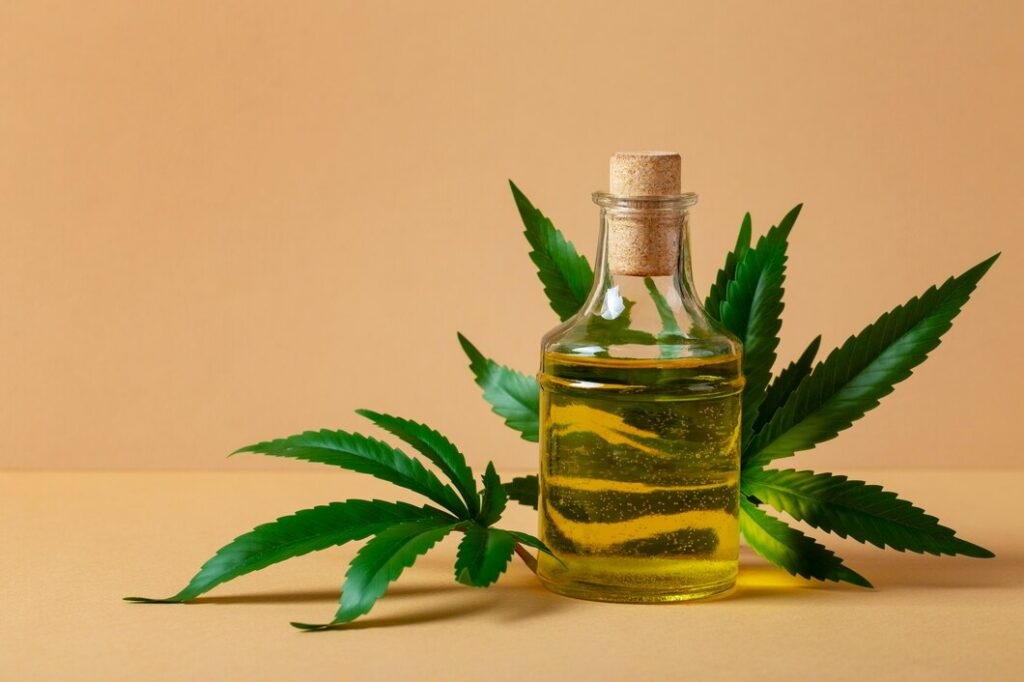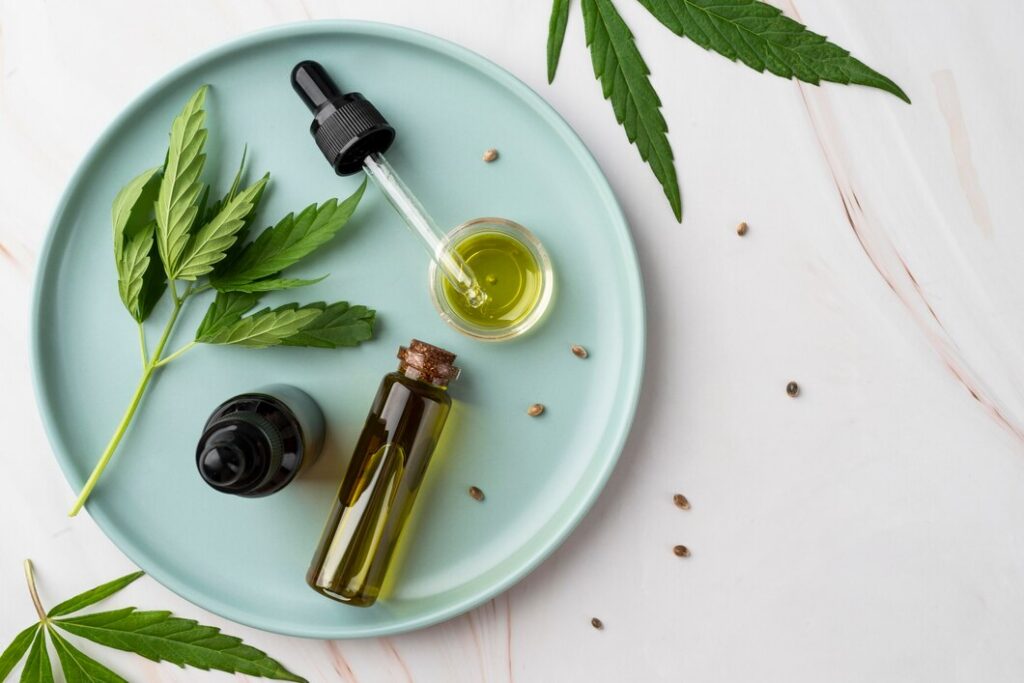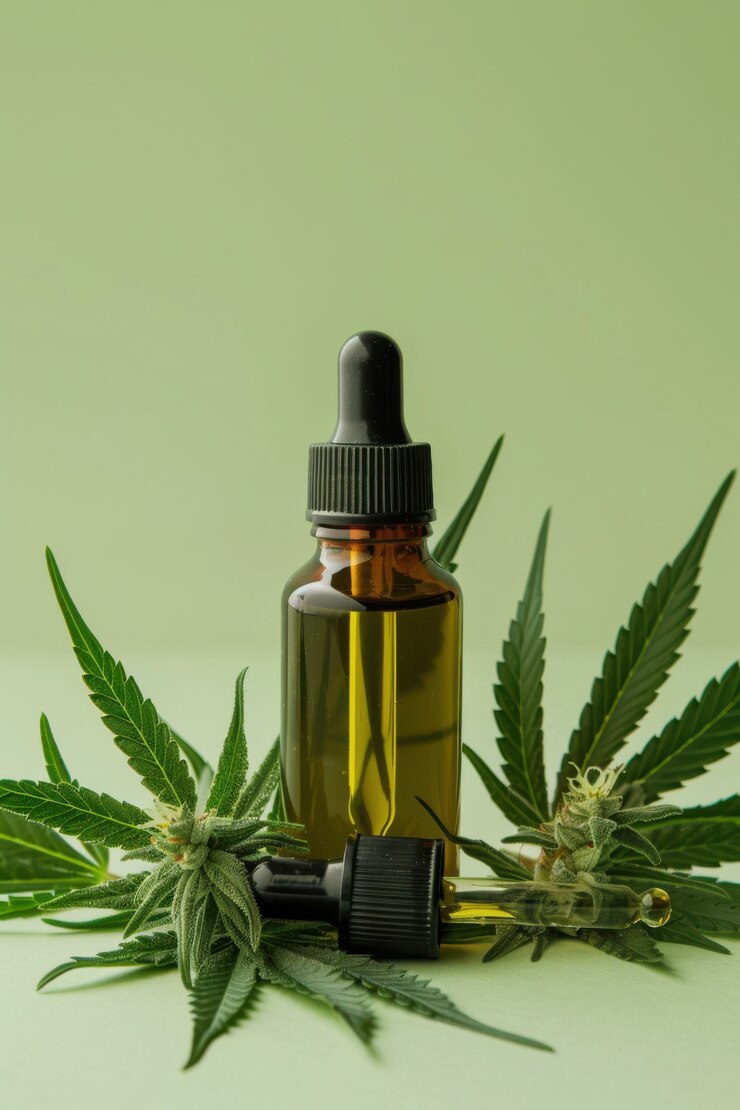Table of contents
As CBD continues to make its mark in the wellness industry, one of the most popular and versatile forms is CBD tinctures. These liquid supplements are easy to use, fast-acting, and customizable for various health needs. But there’s one key ingredient that often goes overlooked—the carrier oil.
Carrier oils are the base that delivers CBD into your body. They play a critical role in bioavailability, taste, texture, shelf life, and overall effectiveness. Choosing the right carrier oil can elevate the quality of your CBD tinctures and enhance the benefits of cannabidiol.
In this guide, we’ll explore the best carrier oils for CBD tinctures, compare their pros and cons, and help you choose the best one for your needs.
What is a Carrier Oil in CBD Tinctures?

A carrier oil is a plant-based oil used to dilute CBD extract and “carry” it into your system. Since CBD is fat-soluble, it needs a lipid to be effectively absorbed by the body. Carrier oils also make dosing more manageable and improve the taste and consistency of tinctures.
Top 5 Best Carrier Oils for CBD Tinctures
1. MCT Oil (Medium Chain Triglycerides)
Derived from: Coconut oil or palm kernel oil
Why it’s great:
MCT oil is the most commonly used carrier oil in CBD tinctures—and for good reason. It has excellent bioavailability, meaning your body can absorb CBD more efficiently.
Benefits:
- Quick absorption
- Neutral taste
- Long shelf life
- Supports brain function and energy levels
Best for: Users seeking fast-acting results and a mild taste.
2. Hemp Seed Oil

Derived from: Cold-pressed hemp seeds (not the same as CBD extract)
Why it’s great:
Hemp seed oil is rich in omega-3 and omega-6 fatty acids, making it an excellent addition to CBD tinctures for overall health and wellness.
Benefits:
- Rich in essential fatty acids
- Supports heart and skin health
- Pairs well with hemp-derived CBD
Note: It has a stronger, nuttier flavor that may not suit everyone.
3. Olive Oil
Derived from: Pressed olives
Why it’s great:
Olive oil is a heart-healthy option and has been used for centuries in both culinary and medicinal applications. It’s also widely available and easy to digest.
Benefits:
- Contains antioxidants
- Anti-inflammatory properties
- Familiar taste for culinary users
Drawback: Has a shorter shelf life compared to MCT oil and a thicker texture.
4. Avocado Oil
Derived from: Pressed avocado fruit
Why it’s great:
Avocado oil is nutrient-dense and packed with vitamins like A, D, and E. It’s a great option for those with nut allergies or sensitivities.
Benefits:
- Moisturizing (great for skin-related CBD uses)
- High smoke point (can be used in cooking)
- Creamy consistency
Best for: Skin care tinctures or edible applications.
5. Grapeseed Oil
Derived from: Pressed grape seeds (byproduct of winemaking)
Why it’s great:
Grapeseed oil is light, fast-absorbing, and full of antioxidants like vitamin E. It’s a good option for cosmetic CBD products and light oral tinctures.
Benefits:
- Light flavor and texture
- Supports skin elasticity
- High in polyunsaturated fats
Drawback: Lower bioavailability compared to MCT.
How to Choose the Best Carrier Oil for Your CBD Tincture
When selecting a carrier oil, consider the following:
- Absorption rate – How quickly do you want effects?
- Flavor – Do you prefer neutral or bold-tasting oils?
- Purpose – Are you using it orally, topically, or in food?
- Allergies – Avoid oils derived from allergens like nuts if you’re sensitive.
Your lifestyle, health goals, and preferences will guide the best choice for you.
FAQs: CBD Tinctures and Carrier Oils
MCT oil offers superior bioavailability, a long shelf life, and a neutral flavor, making it ideal for CBD delivery.
Yes, but make sure to recalibrate the dosage and test for any sensitivities or taste preferences.
The oil doesn’t change the potency of CBD itself but influences how much your body can absorb (bioavailability).
Some companies infuse their carrier oils with flavors, but the oil itself (like coconut or olive) may have a natural taste.
Yes! Especially with MCT, olive, or avocado oils—just avoid high-heat cooking, which may degrade CBD.
Final Thoughts
The carrier oil in your CBD tinctures is more than just a filler—it’s a key component that affects absorption, taste, and overall experience. Whether you prioritize fast absorption with MCT oil or want the nutritional punch of hemp seed oil, understanding your options allows you to tailor your CBD regimen to your unique needs.
As the popularity of CBD continues to rise, becoming more informed about each component—especially the carrier oil—will help you make smarter, more effective wellness decisions.





